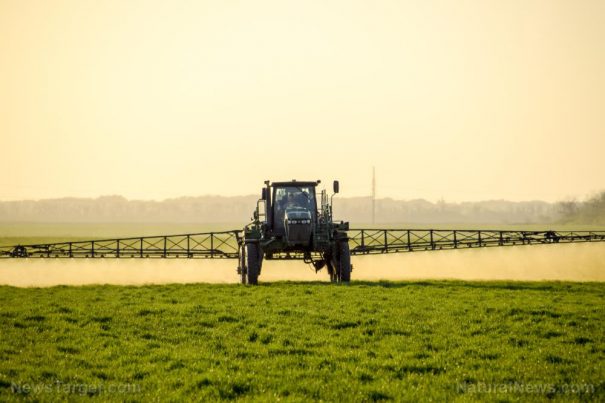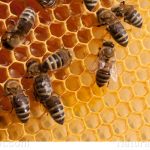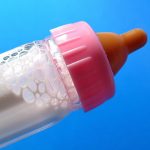
Pee for plant growth? Scientists push for use of human urine as effective, sustainable alternative to chemical fertilizers
Wednesday, May 25, 2022 by Arsenio Toledo
http://www.naturalnewsreports.com/2022-05-25-human-urine-effective-sustainable-alternative-chemical-fertilizer.html

Researchers are advocating the use of human urine as an effective and sustainable fertilizer that could replace environmentally damaging chemical fertilizers.
Some of the strongest advocates from the United States are from the Rich Earth Institute (REI), a Vermont-based research organization that uses science to advance the use of human waste as a resource.
“If you save all the urine that you produce in a day, there’s enough fertilizer in there to grow all the wheat that you need to make a loaf of bread,” said Abraham Noe-Hays, the REI’s research director. “It’s a huge amount of nutrients, and it could grow a significant portion of our dietary needs just from the nutrients in our urine.” (Related: Soils treated with organic fertilizer are healthier; produce stronger plants.)
One study that explores the value of nutrients in human urine for the growth of plants comes from the University of Michigan. Researcher and professor of environmental engineering Nancy Love applied urine-derived fertilizers on peonies at the university’s Nichols Arboretum as part of an effort to educate the public on the benefits of recycling urine.
Love said people may initially be averse to the idea of recycling human urine, but attitudes may change once people are given information on different fertilizers, including the vast differences between chemical and urine-derived ones.
Noe-Hays noted that for urine-derived fertilizers to become mainstream, their use has to become a fixture for communities. This would make people familiar with their use and comfortable with it.
“And we have to have a commercially available product for processing it and turning it into usable fertilizer,” he said.
Scaling up use of human urine a difficult endeavor
The REI is currently running the country’s first community-scale urine recycling program in Vermont and it researches the efficacy of using human urine as a replacement for chemical fertilizers as well as the possible safety issues that could arise from doing so. Urine is collected in a variety of ways, including by using urine-diverting toilets that keep the liquid separate from the solids.
REI Education Director Julia Cavicchi noted that modern-day sanitation practices that flush human urine down into wastewater systems “represent one of the primary sources of nutrient pollution.” She added that urine is responsible for around 80 percent of the nitrogen and more than 50 percent of the phosphorus found in wastewater.
Cavicchi further noted that scaling up the process of using urine-derived fertilizers for enough farms to feed large cities or whole regions of the world would require a full overhaul of wastewater infrastructure.
In Paris, the publicly-owned planning authority Paris et Metropole Amenagement is planning to install urine-diverting toilets, similar to the ones used by the REI, in an “eco-quarter” of the city, home to several shops and around 600 housing units. The urine collected in the eco-quarter will be used to fertilize green spaces in the city.
Other pilot projects are planned or ongoing in Switzerland, Germany, South Africa, Ethiopia, India, Mexico and other parts of France and the United States.
Even if the problems with scaling up the use of human urine are solved, it may still take years for urine-derived fertilizers to become mainstream as researchers and advocates continue to develop the necessary technologies, change people’s attitudes regarding urine-derived fertilizers and change regulations regarding urine recycling.
“It’ll be longer term than short term,” said Love. “But we have to be doing the work now to get us there.”
Basic tips for using urine in home gardening
For gardeners who want to start using urine as a fertilizer for home gardens, the REI recommends following these three simple steps:
- Collect – Urine should ideally be collected in a sealable and airtight container. To help with the smell, the Rich Earth Institute recommends pouring white vinegar or citric acid into the container before using it to store urine.
- Sanitize – For crops intended for consumption by people outside the immediate household, the urine used as fertilizer should be sanitized by storing it in an airtight container at 68 degrees or higher for six months.
- Fertilize – Apply the urine directly to the soil. It should not be used as a spray, and rubber gloves are recommended when handling the urine. The World Health Organization recommends waiting at least one month after fertilization before harvesting the crops.
Learn more about sustainable farming practices at OrganicFarming.news.
Watch this video and learn about how to start a simple garden that can feed a family of four.
This video is from the Natural News channel on Brighteon.com.
More related stories:
Home gardening hacks: 7 Household items you can use as fertilizer.
Is your garden “fertilizer” made from toxic sewage sludge?
Soils are healthier when they are treated with organic fertilizer: Study.
Bioethanol waste shows potential as natural alternative for conventional fertilizer.
Organic fertilizer blend effective at lowering cadmium levels in soil.
Sources include:
Tagged Under: Tags: agriculture, chemical fertilizers, Ecology, environment, goodscience, green living, home gardening, homesteading, human urine, human waste, organic farming, research, sustainable farming, urine
RECENT ARTICLES


Government data: European fruits contaminated with hazardous pesticides increased dramatically over a 9-year period

Bee aware: About 75% of the world’s food crops rely on bees and other pollinators
By Kevin Hughes

As its infant formula sickened babies, Abbott Nutrition issued $5 billion in stock buybacks
By Ethan Huff

In 2021, Bill Gates, Big Pharma and the WHO all participated in a monkeypox plandemic “simulation”
By Ethan Huff
COPYRIGHT © 2017 NATURAL NEWS REPORTS


